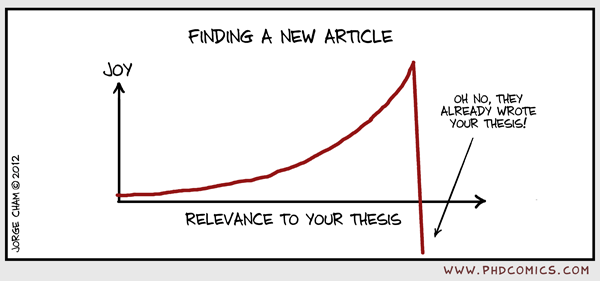
1) Understand how to SELECT topic ideas
2) Use effective strategies to REFINE topic ideas
Click here for 2.1 Step-by-step Instructions (w/ screenshots) on How to Find Review Articles
After selecting a topic, if your assignment requires a working thesis, try to formulate a preliminary working thesis. This will serve as a roadmap to your search.
Once you conduct an initial search of the literature, you might want to refine your topic. Two common ways are:
After refining your topic, revise a working thesis accordingly.
© Florida State University Libraries | 116 Honors Way | Tallahassee, FL 32306 | (850) 644-2706